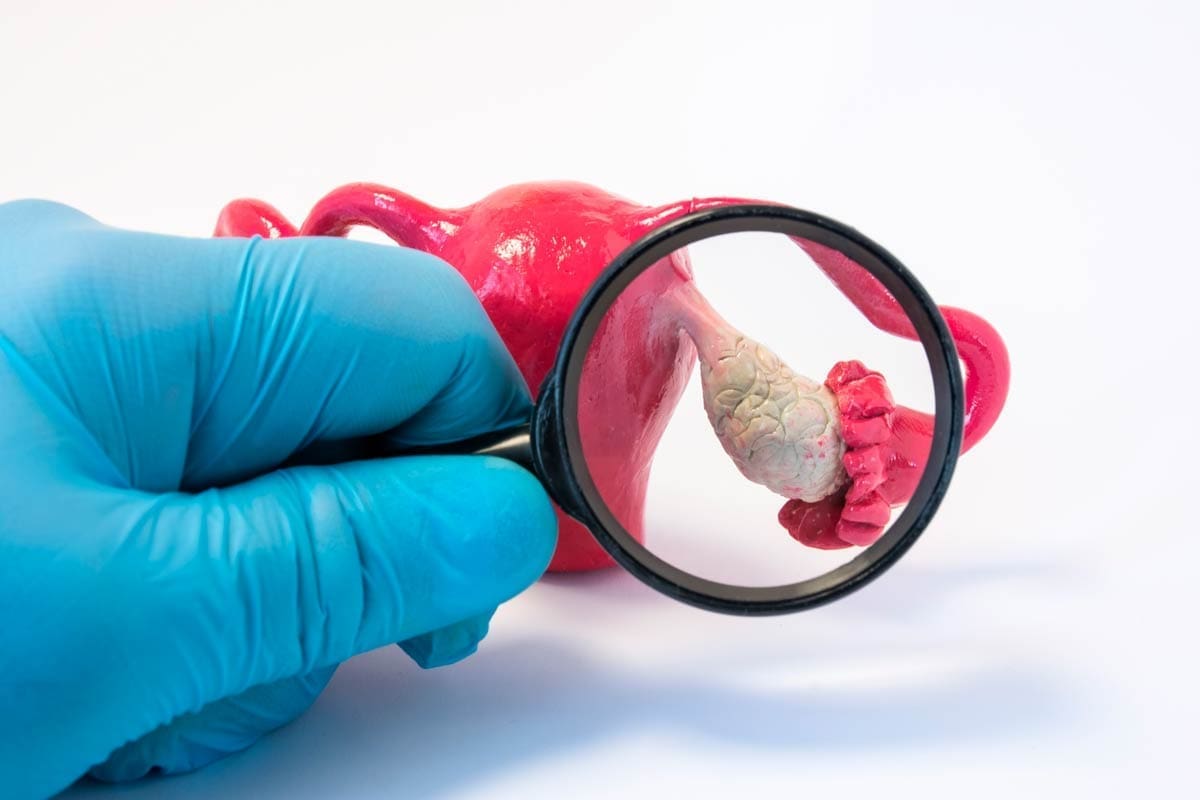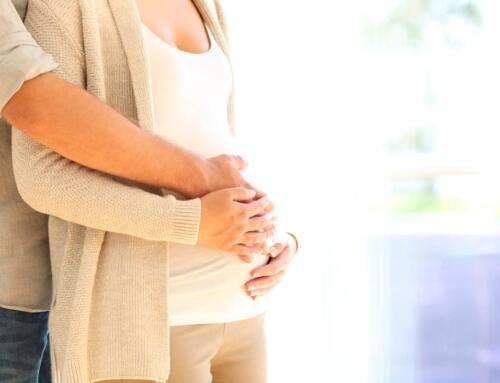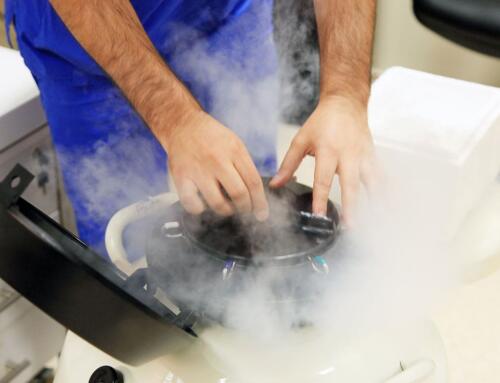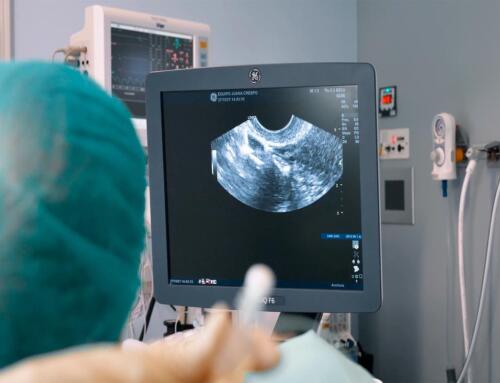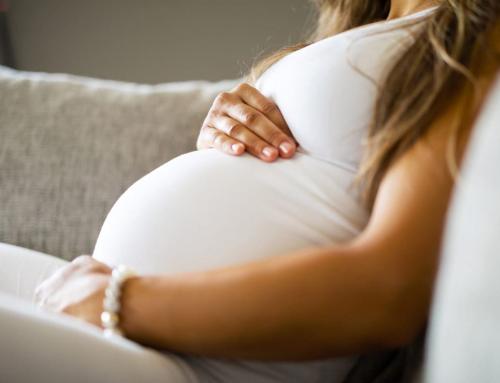Premature ovarian failure (also called premature ovarian failure or POI) is a reduction or total cessation of ovarian function before the age of 40.
In 90% of cases, its origin is unknown, although it is sometimes linked to genetic factors or chromosomal abnormalities (Turner syndrome, Fragile X syndrome, etc.).
Below we will look at other causes of premature ovarian failure, its symptoms and available treatments.
Causes of premature ovarian failure
Other causes of premature ovarian failure can be:
- Endometriosis. Endometriosis is a disease that can diminish ovarian reserve to the point of causing premature ovarian failure.
- Genetic predisposition: daughters of mothers with early menopause tend to have IOP more frequently.
- Autoimmune disorders that disrupt normal ovarian function (e.g. hypothyroidism, lupus erythematosus, rheumatoid arthritis, Addison’s disease, etc.).
- Toxic exposure (e.g. cancer treatments such as chemotherapy and radiotherapy).
- Infections (caused by herpes Zoster or cytomegalovirus).
- Some gynaecological surgeries (e.g. surgery to treat endometriosis or to treat an ovarian cyst).
Symptoms and risk factors for premature ovarian failure
The symptoms of premature ovarian failure are little different from those of any other woman at menopause because they are mostly related to a decrease in oestrogen levels in the blood and an increase in follicle stimulating hormone.
Among these generic symptoms, we can list:
- Absence of menstruation (amenorrhoea) or irregular periods.
- Night sweats.
- Vaginal dryness.
- Hot flushes.
- Problems falling asleep.
- Insomnia.
- Irritability.
- Concentration problems.
- Lack of sexual desire.
Hormonal changes associated with decreased ovarian activity may also occasionally be linked to other conditions, such as dry eye syndrome (which can cause irritation and blurred vision), heart disease (early oestrogen loss may be associated with an increased risk of cardiovascular events, such as heart attacks) and osteoporosis (oestrogen helps keep bones strong, and with a reduction in oestrogen, bone mass may weaken, increasing the likelihood of broken bones).
On the other hand, the sudden and unexpected absence of menstruation in younger women can affect their mood, causing anxiety and depression that should be treated by a specialist.
Although not conclusive, some of the factors that may increase the risk of premature ovarian failure include:
- Age. This type of pathology is more common after the age of 35.
- History. The risk of having POI is higher in women with a family history.
- Diseases. Ovarian insufficiency is more common in women with diseases that affect the reproductive system, such as endometriosis.
Tests to diagnose ovarian failure
In the absence of menstruation or irregular periods, the first recommendation is to see a gynaecologist.
A physical examination with this specialist, including a vaginal ultrasound, will be essential to analyse your menstrual cycle and the state of your ovaries.
However, the most effective method of diagnosing ovarian failure is a blood test to assess the levels of the hormones FSH, prolactin and oestradiol.
Low levels of oestradiol and gonadotrophins above 40 mIU/mL are usually considered evidence of ovarian failure, although the test is usually repeated to confirm results.
Is there treatment for POI?
Premature ovarian failure in young women affects both their physical and mental health, and usually requires multidisciplinary treatment.
One of the most common options to alleviate symptoms such as sweating or vaginal dryness is hormone replacement therapy using oestrogen and progesterone pills or patches.
The latter is essential in women who have a uterus, as progesterone protects the endometrium from pre-cancerous cells.
Treatment of ovarian insufficiency also includes taking adequate calcium and vitamin D to prevent osteoporosis (dietary changes and supplements are often recommended), exercise and weight control to reduce the risk of cardiovascular events.
Ovarian insufficiency and pregnancy: How does it affect?
The desire to have a child can be a determining factor in the mental health of women of reproductive age who are unexpectedly faced with a pathology such as this.
Premature ovarian failure affects a woman’s fertility and is a problem that worries many patients who visit our clinic.
The absence of ovulation and low oestrogen levels mean that many women with POI are unable to become pregnant or do not respond to ovarian stimulation.
In any case, and although there is no treatment that fully restores fertility, it is true that with the appropriate assisted reproduction techniques some of these patients can achieve pregnancy.
This happens because, in some cases, the alteration of ovarian function is not permanent, but intermittent, and at least one of their ovaries shows some activity.
These women can ovulate spontaneously and become pregnant.
On the other hand, some women with premature ovarian failure between 30 and 40 years of age can achieve good embryos through IVF with their own eggs if the ovarian failure is transient, their ovarian reserve is high and their karyotype test is normal (i.e. if there are no genetic or chromosomal alterations).
In other cases, experts will recommend other techniques that offer very good results, such as egg donation: that is, using a donor egg and fertilising it using the ICSI technique.
Your personalised assisted reproduction treatment with Juana Crespo
A personalised assisted reproduction treatment is always essential to achieve pregnancy, but it is especially important for women with premature ovarian failure or low ovarian reserve.
At Juana Crespo we assess each case individually and offer our patients comprehensive advice throughout the whole process. Call us on 961 042 557 or write to us and book your first visit now.


